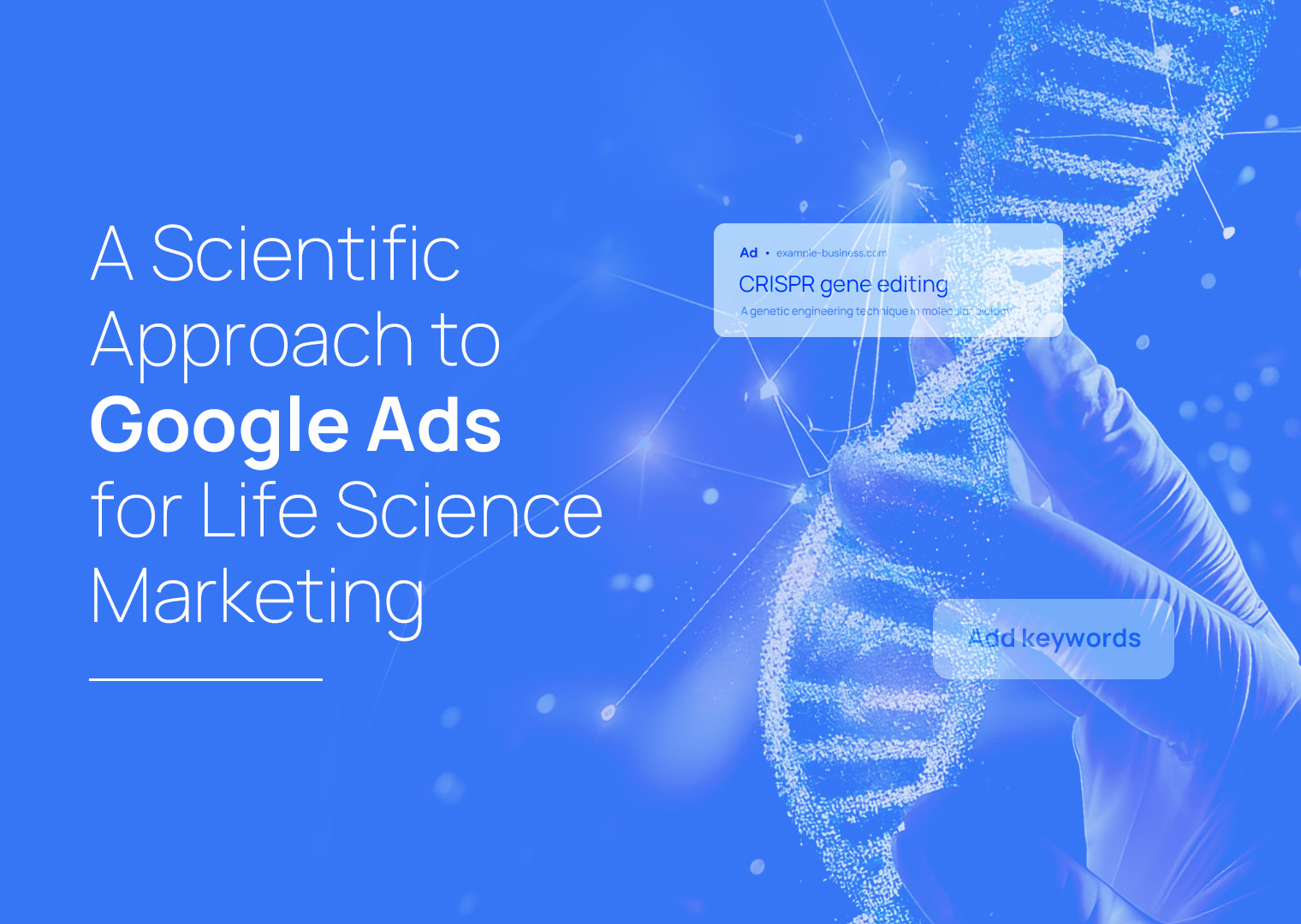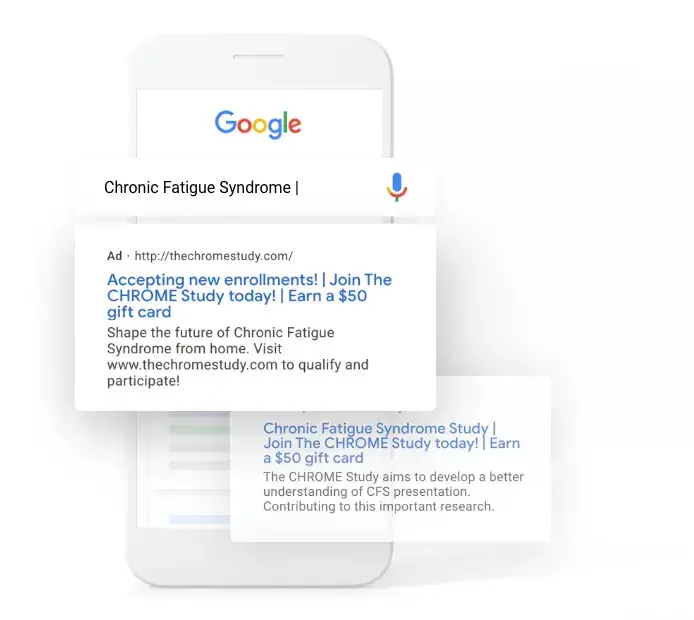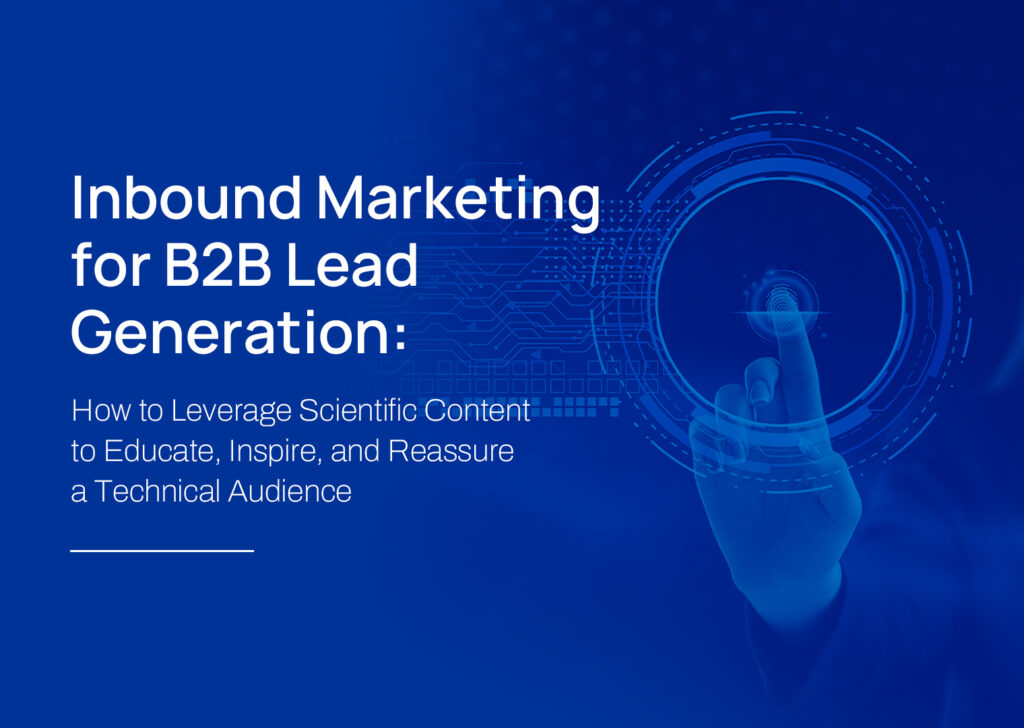Highlights:
-
- Google Search Ads are a great tool to target specific audiences and promote niche products/technologies in the life sciences.
-
- Scientific expertise is fundamental to selecting keywords and understanding customer search intent.
-
- The right mix of keywords and negative keywords to drive traffic and filter out irrelevant searches is required for effective Google search Ad campaigns.
Google Ads for Life Science Marketing
Life science companies develop technologies that solve some of the most important issues in medicine and science. However, promoting these technologies is challenging because their target audience is small and ultra-specialized.
Google Search Ads are a great tool to promote life science products and technologies to hard-to-reach audiences, as Ads are matched to specific search intent based on keywords. Identifying and contextualizing relevant keywords requires deep scientific knowledge and understanding of scientists’ pain points.
Read on to learn how to leverage scientific knowledge in the life science space to optimize Google search Ad campaigns and how to choose the correct partner for your life science marketing needs.
Google Search Ads for Promoting Life Science Products and Technologies
Many platforms, such as Google, social media (i.e.. LinkedIn), scientific journals, and specialized news media, can be used to market technologies and products. Each platform will have advantages and disadvantages depending on your target audience and your business goals, so choosing the correct channel(s) is critical to an effective marketing campaign.
One of the main advantages of Google Search Ads compared to other platforms is that search ads are served to match the most relevant search queries based on keywords used and searcher intent. Google analyzes keywords and determines which ad suits that specific search best. Thus, keywords are integral to designing optimal Google Search Ad campaigns.
Keywords Research for Maximal Campaign Performance
Keywords are the backbone of Google Search Ads. But what exactly are keywords? And how do you choose the correct ones for a specific campaign?
Keywords are words or phrases used to match ads with terms people are searching for (1). Knowing which keywords are being used by your target customers is crucial to developing effective search campaigns. Here is where deep scientific expertise first comes into play.
Take a step back, put yourself in your customer’s point of view, and ask: If I had to solve a similar problem, which attributes/characteristics/components would I look for in a solution? The answer to this question will be a list of initial keywords your target customers may use to find your organization’s products and services.
After compiling that initial list, it is important to analyze it with tools like Google Keyword Planner to determine search volume in a given time frame and keyword difficulty. Overall, striving for keywords with a high search volume and low difficulty is recommended. Still, striking this balance in the life sciences is especially challenging.
Given the ultra-specialized nature of many disciplines, the keywords identified might have a low search volume, making them difficult targets for your Google Ads. At the same time, trying to include broader, more popular keywords may also be difficult, as other, more established companies might be competing for them, thus increasing their difficulty and cost per click
Finding Balance with Keywords: Search Volume, Match Type, and Negative Keywords
Scientific expertise is key to finding the right balance in your campaign’s keywords. Consider the scientific context in which your products exist and what broad keywords will relate to them.
For example, you work for a company that provides multicellular algae next-generation sequencing services. Initial broad keywords might include next-generation sequencing, sequencing services, algae genomes, and algae sequencing. Then, think about what keywords your customers will use to find your solutions, such as multicellular algae sequencing, multicellular algae genome characterization, fast algae sequencing services, in-situ algae sequencing, etc.
By combining broad keywords that relate to your products and services with specific long-tailed keywords, your ads will have a better chance at being served to a broader audience while still capturing specific interest for your products and services.
To further refine your campaign, consider the addition of negative keywords to filter out those search queries that may be broadly related to your topics but don’t indicate a target customer.
Negative keywords act as the inverse of your targeted keywords and should be used to determine which search queries you do not want to trigger your ads. In the example above, you may consider including negative keywords such as “what is, “how to,” and “definition” to prevent your ads from serving searchers that want to know “what is next generation sequencing” or “multicellular algae definition.”
Most likely, your target customers are aware of the basics of your technology and are ready to learn more about how it can apply to their specific needs. Setting up negative keywords is an effective way to reduce unnecessary spending and avoid serving your ads for searches that aren’t relevant to the goals of your business.
Continuous Optimization for Long-Term Campaign Success
Even with carefully crafted ads and expertly chosen keywords, they will only benefit if the search keywords are present throughout all assets related to a specific Google Search Ad campaign. To be effective, keywords need to be present in the ad text, in the landing pages of your product and services that your ads lead searchers to, and in the titles and meta descriptions of those landing pages. This way, Google will better match ads to search intent and increase the likelihood of your ads being displayed.
As you monitor and optimize your campaigns, be sure to improve your ad content if needed, and ensure that your landing pages feature the target keywords appropriately. This way, Google will have the information necessary to determine their relevance and to serve your ads to the right customer.
Ready to get started with Google Ads for your organization? Check out our other resource to better plan your Google Ads campaign such as optimizing your Ad budget and audience.
References:
Written by:
Ryan Sogge is a Digital Marketing Manager at Samba Scientific. Focusing on inbound content, lead generation, and SEO, Ryan has a proven track record of executing data-driven digital marketing campaigns. He advocates for attention to art and design, accessibility, community outreach, and storytelling in all aspects of digital marketing. Learn more about him on LinkedIn.
Matias Jaureguiberry is an Account Manager at Samba Scientific, where he manages marketing strategy for growth-stage biotech companies to help them promote their unique solution in a compelling and engaging way. Learn more about him on LinkedIn.






